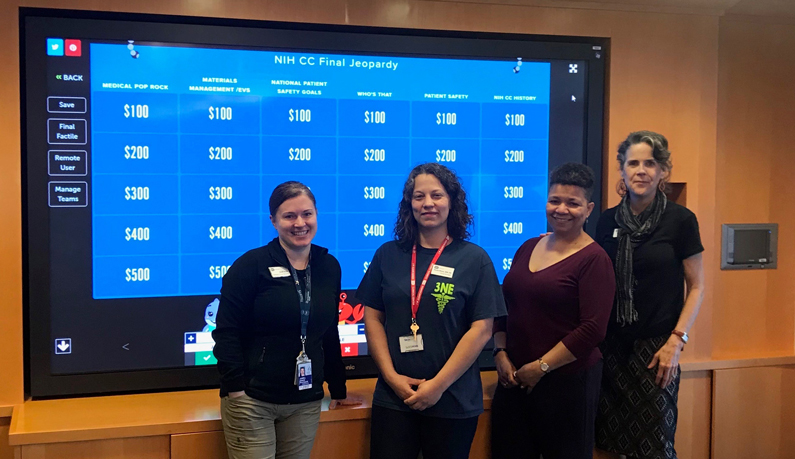Content on this webpage is provided for historical information about the NIH Clinical Center. Content is not updated after the listed publication date and may include information about programs or activities that have since been discontinued.

A Clinical Center "Germ Busters" team celebrated Patient Safety Week and shared the power of clean hands with patients, visitors and staff in the Clinical Center's North Atrium April 2-4. Participants were invited to test their knowledge of Hand Hygiene through interactive games and activities.
Test your knowledge with the True or False questions below (scroll down to the bottom for the answers):
- Damp hands spread more germs than dry hands.
- Washing hands in very hot water and soap is ideal to remove the most bacteria.
- Hand sanitizer that contains alcohol is harmful to skin and should not be used.
- Hand hygiene is a simple, low cost action to prevent the spread of germs.
- Hand washing for 10 seconds is the best way to prevent the spread of germs.
- People frequently touch their eyes, nose, and mouth without even realizing it.
- Handwashing helps fight antibiotic resistance.
- Germs from unwashed hands may get into food and drinks and make people sick.
- Health Care Workers should wash their hands after giving an injection; not after taking a patient's pulse.
- Handwashing can prevent 1 in 5 respiratory infections such as the cold or flu.



NIH Clinical Center visitors participate in Patient Safety Week activities and display "I Love Clean Hands" sign in the atrium. Participants also test their knowledge on hand hygiene myths spin the wheel.



1. True; 2. False; 3. False; 4. True; 5. False; 6. True; 7. True; 8.True; 9. False; 10. True.

